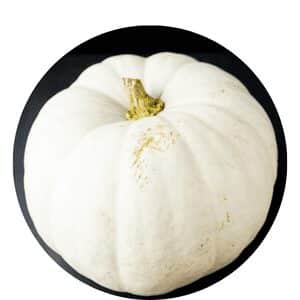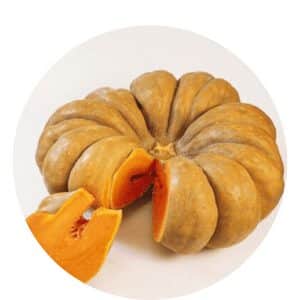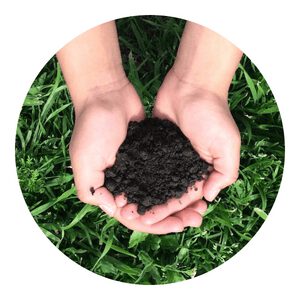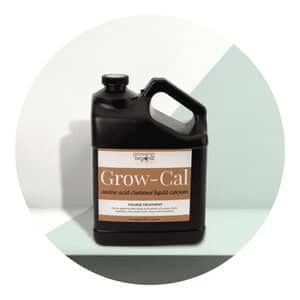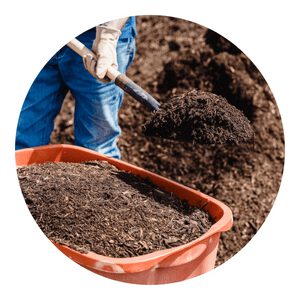How to grow organic Pumpkin In Florida
Growing organic pumpkins in Florida is an enjoyable activity for any gardener.
Pumpkins are a great addition to any garden and are a nutritious treat for the whole family.
With the right preparation and care, you can grow delicious organic pumpkins that will thrive in Florida’s climate.
Whether you’re growing pumpkins as decoration or to make homemade pies, this article will provide helpful tips on how to grow organic pumpkin in Florida.
Florida Pumpkin Menu
The benefits of growing organic pumpkins
Organic pumpkins offer a number of benefits to those who choose to grow them.
Not only are they better for the environment, but they also provide a healthier option than non-organic varieties.
Here’s a brief overview of the top advantages that come with growing organic pumpkins in Florida.
The first and most obvious benefit is that organic pumpkins contain no pesticides or other chemicals.
Since these toxins can have damaging long-term effects on both the environment and people, it makes sense to opt for chemical-free produce whenever possible.
Furthermore, organic pumpkins are more nutrient-dense than regular ones.
This means you’ll get more vitamins and minerals from eating organic pumpkin – something that’s especially important for children or pregnant women who need extra nutrition during their development stages.
Using organic fertilizer for pumpkin growth
Organic pumpkins are one of the most popular vegetables grown in Florida.
Growing organic pumpkins requires the use of natural, earth-friendly methods and materials.
One of the key components to successfully growing organic pumpkins is using a quality organic fertilizer.
Organic fertilizers provide essential nutrients that promote healthy root growth and production of fruits and flowers for pumpkin plants.
Organic fertilizers contain naturally derived ingredients like plant meals, animal manures, sea kelp, rock phosphate and other minerals that help build strong soil structure for effective absorption of water and air into root systems.
These natural ingredients slowly release nutrients over time so plants receive a steady stream of available nutrition throughout their growing season rather than a single large dose at once.
Additionally, because these fertilizers don’t contain synthetic chemicals or fillers like traditional fertilizer, they won’t burn or harm plants when applied correctly.
Organic Fertilizer for Pumpkin Growth
Organic fertilizers are a great way to ensure optimal growth without having to worry about the environment or your own health.
They provide a natural way to nourish your plants, making them more resistant to pests and diseases.
When it comes to fertilizing, there are several types of organic fertilizer available for pumpkin growth in Florida.
Composted materials such as leaves and grass clippings are an excellent source of nutrients as they break down over time, releasing valuable minerals into the soil that promote healthy pumpkin growth.
Manure is also an effective type of organic fertilizer that helps improve soil structure while providing necessary nutrients including nitrogen, phosphorous and potassium.
Different types of organic fertilizer
Organic fertilizer is an important element in growing organic pumpkin in Florida. It can help promote healthy growth and prevent disease in your plantings.
Compost is the most widely used form of organic fertilizer because it’s easy to make yourself with materials like kitchen scraps and yard clippings.
Compost provides a wide range of nutrients for plants, including nitrogen, phosphorus, and potassium.
Additionally, it helps improve soil structure by adding beneficial microbes that create air pockets allowing water to penetrate more deeply into the soil.
Bone meal is made from animal bones that have been ground into a powdery form for use as an organic fertilizer.
It’s high in phosphorus which helps plants develop strong root systems and flower buds.
A smile to behold I have today As I carefully look down at my vale Seeding and planting in a line Organic pumpkin, here to shine Rows of bright pumpkins near and far Freshly grown, a sight so grand Wide smiles among each one of us Grow organic pumpkin in Florida we must!
Chappy The Gardener
How to choose the right organic fertilizer for your pumpkin plants
Whether you’re growing pumpkins for a competition or simply to enjoy the fruits of your labor, choosing the right organic fertilizer can be essential to ensure that your plants remain healthy and vibrant.
Organic fertilizers help provide essential nutrients to plants without introducing any potentially harmful chemicals into the environment.
Here are some tips on how to choose the right organic fertilizer for your pumpkin plants:
First, consider what types of nutrients your soil needs.
Pumpkin requires phosphorus, potassium, nitrogen and other trace minerals in order to thrive.
Make sure that whichever organic fertilizer you select contains all of these elements in appropriate amounts for optimal growth.
Additionally, research what type of fertilizer works best with pumpkins – some fertilizers may have different levels of nutrient concentration than others.
Tips for applying organic fertilizer to pumpkin plants
Organic pumpkin production in Florida can be a rewarding and fun experience.
However, it is important to ensure that the organic fertilizer you use for your pumpkin plants is applied correctly in order to maximize their growth potential.
Here are some tips to help you make sure you apply organic fertilizer correctly:
First, take into account the nutritional needs of the plant when selecting an organic fertilizer.
Pumpkin plants need plenty of nitrogen, phosphorus, and potassium to thrive.
Make sure to choose an organic fertilizer that contains all three of these essential nutrients in sufficient amounts for your particular soil type and climate conditions.
Second, consider how often you will need to fertilize your pumpkins.
Generally speaking, applying an organic fertilizer every four weeks or so should be sufficient during the growing season.
Making your Pumpkin Big
When the topic turns to pumpkins, everyone has dreams of growing their own, especially in Florida.
However, some may think this is an impossible task; but with a little guidance on how to grow organic pumpkin in Florida, it can be achieved!
Organic pumpkins require consistent monitoring and care.
The key to making your pumpkin big is ensuring that there’s ample sunshine, plenty of water and nutrients in the soil.
You will need to provide at least 1 inch of water per week or more during the summer months when temperatures are higher.
Planting the seeds 2 inches deep into well-drained soil works best while also adding compost or manure for added nutrition.
Be sure to space your seeds properly so they have enough room to spread out as they grow.
Keeping weeds under control should also be a priority since they can rob your plants of valuable resources like moisture and nutrients.
Techniques for maximizing pumpkin size
Organic pumpkins in Florida can be a challenge to grow, but with the right techniques, you can get big, beautiful pumpkins.
Adequate spacing and thinning of fruit are two key elements for maximizing pumpkin size.
When planting organic seeds in your garden, it’s important to give each seedling enough room to grow and reach its full potential; at least 24 inches of distance between plants is recommended.
Thin out any extra vines or stems that appear near the base of the pumpkin plant as this will promote better fruiting by concentrating energy on fewer fruits.
Thinning also helps reduce competition for light and water resources among plants so that each individual pumpkin can get enough nutrition to thrive and reach its maximum size.
Regular watering and proper sunlight exposure
Organic pumpkin production is an excellent way to provide healthy, nutritious food for your family.
But in order for your organic pumpkins to thrive and produce a good crop, regular watering and proper sunlight exposure are essential.
Proper watering plays a key role in the success of organic pumpkin growth.
The soil should be kept consistently moist to ensure that the plants get enough moisture.
To avoid over-watering or under-watering, it is best to set up an irrigation system that automatically waters the pumpkins at regular intervals.
Additionally, mulching can help retain water and keep weeds away from the pumpkins.
Adequate sunlight exposure is also important for successful organic pumpkin growth in Florida’s climate.
How to identify and address common issues that can affect pumpkin growth
Organic pumpkins are a beloved part of the fall season, providing both a tasty treat and fun activity for gardeners.
Growing organic pumpkins in Florida can present its own set of challenges, especially in regards to identifying and addressing common issues that may arise during the growth process.
To ensure your pumpkins reach their full potential it is important to know what signs to look out for and how best to address them.
Some of the most common issues that can affect pumpkin growth include pests, nutrient deficiencies, diseases, and temperature extremes.
For example, aphids can stunt the growth of pumpkins by eating away at their leaves while powdery mildew is a fungus that prevents photosynthesis from occurring on affected leaves.
Nutrient deficiencies such as low nitrogen levels may also lead to stunted plants with yellowing leaves while extreme temperatures can cause fruit set failures or blossom end rot.
Organic Methods for Pumpkin Growing in Florida
Organic pumpkin growing in Florida is a rewarding experience for any gardener.
Not only does it provide the opportunity to enjoy fresh pumpkins during the fall season, but it also offers an eco-friendly approach to gardening.
With careful planning and preparation, each step in this process can be done without sacrificing the organic integrity of your garden.
To begin with, choose an area that receives plenty of sunshine and has well-draining soil.
Composting can improve soil quality by providing nutrients and beneficial bacteria that will help promote healthy plant growth.
Additionally, spacing out your pumpkin plants properly will prevent overcrowding so that they receive adequate air circulation and sunlight penetration.
Furthermore, keeping weeds away from your plants reduces competition for vital resources such as water and nutrients.
The unique challenges of growing pumpkins in Florida
Growing pumpkins in Florida can be a unique challenge due to the state’s hot, humid climate.
The heat and humidity of the tropical environment can cause pumpkin plants to struggle if not properly cared for.
To succeed in growing organic pumpkins, Florida gardeners must understand the conditions they are dealing with and adapt their gardening methods accordingly.
The biggest challenge is often the warm temperatures which can cause pumpkin flowers to wilt quickly and inhibit pollination.
A combination of providing adequate shade and mulching around the base of plants helps them stay cool enough for successful pollination.
Additionally, planting varieties that are better adapted to warmer climates like jack-o’-lanterns or “Autumn Gold” will give you an edge over other traditional varieties such as sugar pie and acorn squash.
Organic pest control methods for common pests in Florida
Organic pest control methods are a safe and eco-friendly way to manage pests in the garden.
In Florida, there is an abundance of common garden pests such as flea beetles, aphids, squash bugs, and cucumber beetles that can cause damage to crops.
It’s important for those looking to grow organic pumpkin in Florida to be aware of these pests so they can work on creating an organic pest management plan.
Organic pest control tactics include using natural predators such as ladybugs, praying mantises and lacewings as well as insecticidal soaps and neem oil solutions.
Additionally, physical barriers like row covers or floating row covers can help protect the plants from unwanted insects.
Finally, crop rotation is also a great tool for managing some common pests found in Florida gardens.
Tips for improving soil quality and drainage in Florida's sandy soil
Growing organic pumpkin in Florida can seem like a daunting task due to the sandy soil and lack of drainage.
To maximize your chances of success, it is essential to take steps to improve the quality and drainage of the soil.
Here are some tips for improving soil quality and drainage in Florida’s sandy soil.
First off, consider adding compost or other organic matter such as peat moss or manure to your soil.
This will help retain moisture, increase nutrients levels, and improve the overall structure of the soil.
Adding mulch can also be beneficial in helping reduce evaporation from the surface and keeping weeds at bay.
Additionally, you may want to test your pH level with a simple kit before planting; acidic soils are common in Florida, so you may need to adjust accordingly.
How to use companion planting to improve pumpkin growth
Organic pumpkin growth in Florida starts with companion planting.
Companion planting is a method used to increase the yields of vegetables and crops by strategically planting other vegetables or fruits near them.
This type of gardening helps to improve soil fertility, pest control, and disease prevention.
In addition, it can be beneficial for organic pumpkin growth in Florida because the right combination of plants can attract beneficial insects and help to improve soil nutrients that will benefit pumpkins.
When planning out your companion planting strategy, focus on plants that are known to promote healthy pumpkin growth such as marigolds, basil, beans, garlic and sunflowers.
These companions will attract predatory insects that eat aphids and other pests that attack pumpkins while also providing nitrogen into the soil which will help support healthy plant growth.
In conclusion, growing organic pumpkin in Florida is possible with the right preparation, care, and maintenance.
With proper soil selection, watering, fertilizing, and pest control measures, organic pumpkins can be grown successfully for home use or sale.
Additionally, it is important to consider the variety of pumpkin you want to grow as some may do better in Florida’s climate than others.
Growing organic pumpkin in Florida can be a fun way to enjoy homegrown pumpkins while helping the environment by avoiding chemical use.
Click To Grow
Helps Us Grow – Share If You Like





